7 Unmatched Benefits of Lithium and Lithium Ion Batteries You Need to Know
Table of Contents
- Benefits of Lithium Batteries: Energy Density and Efficiency
- Longevity and Durability: The Lasting Power of Lithium-Ion
- Lightweight Advantages: How Lithium Redefines Battery Design
- Fast Charging Capabilities: Revolutionizing Power Supply
- Environmental Impact: Lithium Battery Recycling and Sustainability
- Versatile Applications: From Electric Vehicles to Portable Devices
- FAQS
- Conclusion
- Related Posts
The rise of Lithium Battery and Lithium Ion Battery technologies has transformed various industries, offering unmatched benefits that are reshaping the energy landscape. With the global lithium-ion battery market projected to reach over $100 billion by 2028, advancements in energy storage are becoming increasingly vital. Roofer Electronics Technology (Shanwei) Co., Ltd., leveraging more than 27 years of expertise in R&D, manufacturing, and solution services, has positioned itself as a leader in this domain.
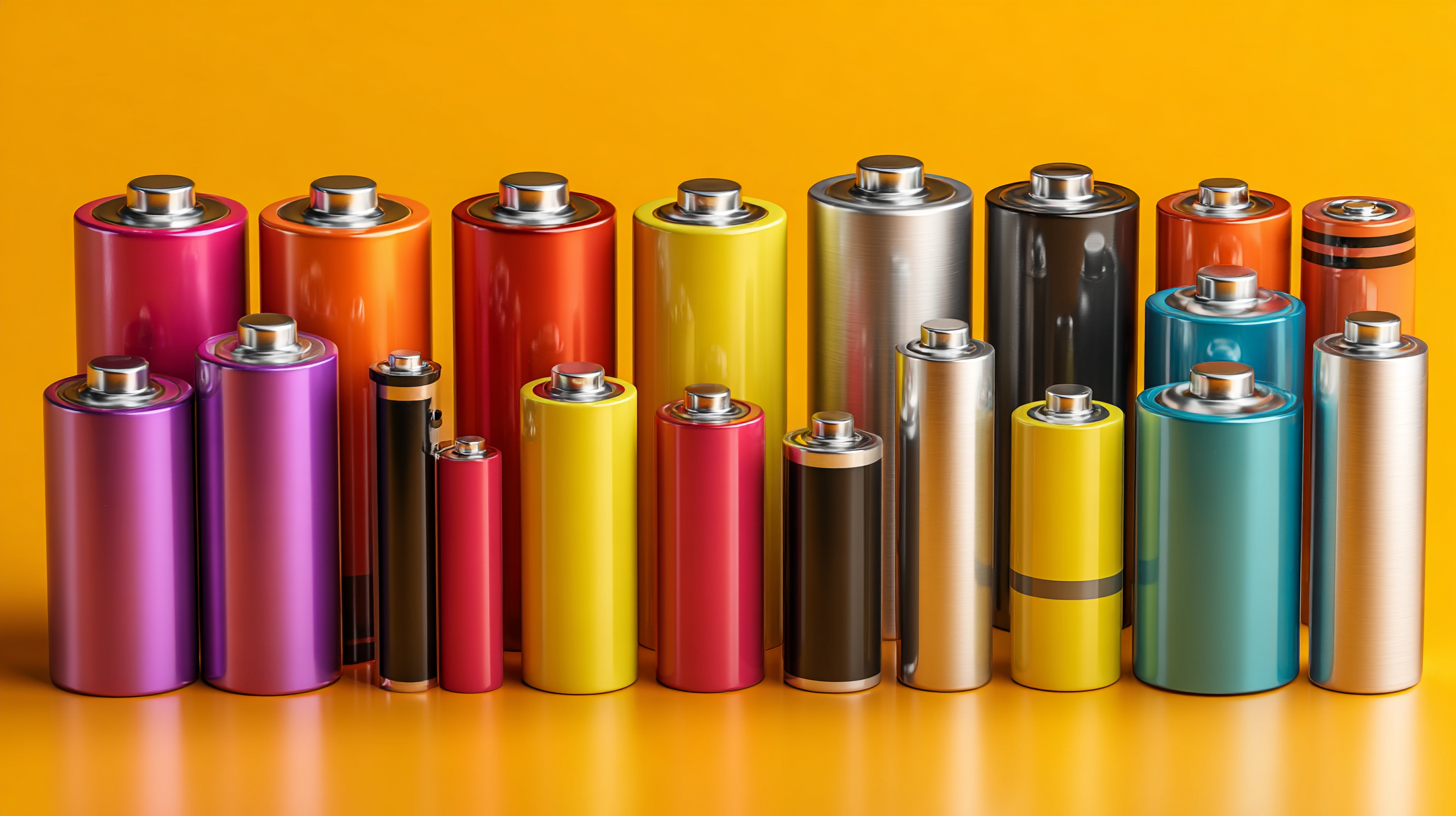
Our lithium battery products not only serve diverse applications such as household energy storage and electric bicycles but also play a crucial role in replacing outdated lead-acid batteries. As we delve into the seven unparalleled benefits of these cutting-edge batteries, we emphasize their efficiency, longevity, and innovative applications that are setting new standards across sectors. The growing demand for sustainable energy solutions further underscores the importance of understanding these technologies in today's rapidly evolving market.
Benefits of Lithium Batteries: Energy Density and Efficiency
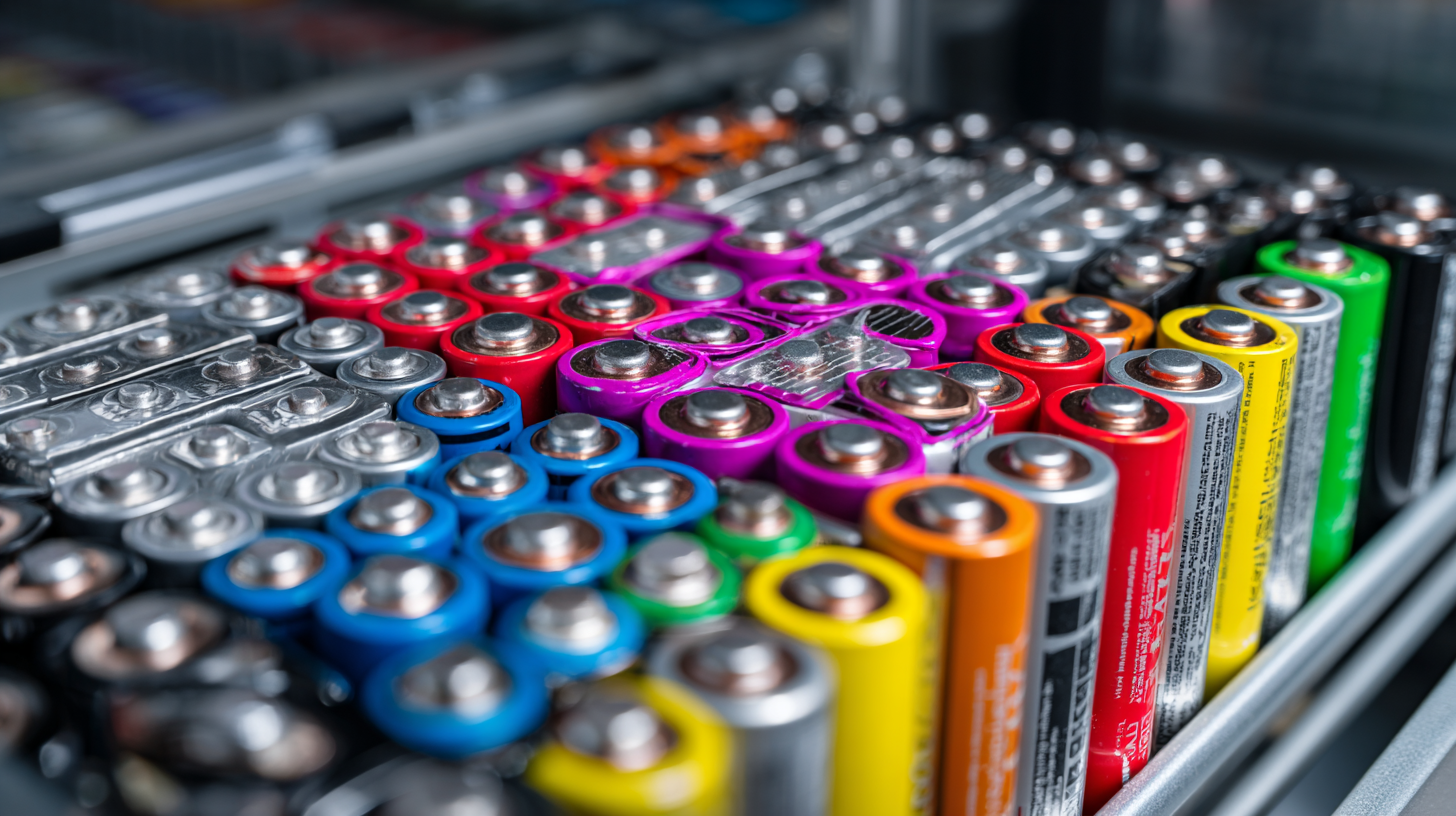 Lithium and lithium-ion batteries have revolutionized the way we store and use energy, primarily due to their impressive energy density and efficiency. One of the most significant advantages of lithium batteries is their ability to pack a substantial amount of energy into a relatively small and lightweight structure. This characteristic makes them ideal for applications where space and weight are critical, such as electric vehicles and portable electronic devices. With energy densities ranging from 150 to 250 Wh/kg, lithium batteries can store more energy than traditional lead-acid or nickel-cadmium counterparts, allowing for longer usage times between charges.
Lithium and lithium-ion batteries have revolutionized the way we store and use energy, primarily due to their impressive energy density and efficiency. One of the most significant advantages of lithium batteries is their ability to pack a substantial amount of energy into a relatively small and lightweight structure. This characteristic makes them ideal for applications where space and weight are critical, such as electric vehicles and portable electronic devices. With energy densities ranging from 150 to 250 Wh/kg, lithium batteries can store more energy than traditional lead-acid or nickel-cadmium counterparts, allowing for longer usage times between charges.
Furthermore, the efficiency of lithium-ion batteries plays a crucial role in their widespread adoption. These batteries boast a high charge/discharge efficiency, often exceeding 90%. This means that more of the stored energy is usable, minimizing wastage. Additionally, their low self-discharge rate ensures that they retain their charge longer when not in use. As a result, users benefit from improved performance and reduced energy costs, making lithium batteries an increasingly attractive option for both consumers and manufacturers alike.
Longevity and Durability: The Lasting Power of Lithium-Ion
Lithium-ion batteries have become synonymous with longevity and durability in the realm of energy storage. According to a report by the International Energy Agency (IEA), lithium-ion battery technology has evolved significantly, achieving an impressive lifespan of up to 2,000 charge cycles, which translates to approximately 5 to 10 years of reliable performance under regular usage. This remarkable longevity is primarily due to the gradual degradation of the battery chemistry, allowing users to maximize the utility of their investments without frequent replacements.
Moreover, the durability of lithium-ion batteries is underscored by their performance in extreme conditions. A study from the National Renewable Energy Laboratory (NREL) revealed that lithium-ion batteries maintain more than 80% of their original capacity even after prolonged exposure to challenging environments, such as high temperatures or varying charging rates. This resilience not only ensures treatment of demanding applications—from electric vehicles to renewable energy storage—but also emphasizes lithium-ion's critical role in sustainable energy solutions. As technology continues to advance, these batteries will solidify their position as the backbone of a greener, more efficient future.
Lightweight Advantages: How Lithium Redefines Battery Design
Lithium and lithium-ion batteries have transformed the landscape of energy storage, particularly due to their lightweight advantages. Unlike traditional lead-acid or nickel-cadmium batteries, lithium batteries offer a high energy density, which allows for a more compact design. This reduction in weight is crucial for applications ranging from portable electronics to electric vehicles. By incorporating lithium technology, manufacturers can create devices that are not only easier to handle but also more efficient, resulting in longer usage times without increasing bulk.
Tips for maximizing the benefits of lightweight lithium batteries include proper maintenance and storage. Ensure that batteries are kept at an optimal charge level and avoid exposing them to extreme temperatures, as this can affect their lifespan. Additionally, consider the weight distribution in your devices; a balanced design enhances usability and performance. As lithium technology continues to evolve, users can expect even more innovations that leverage lightweight properties for various applications, making it an exciting area to watch.
7 Unmatched Benefits of Lithium and Lithium Ion Batteries You Need to Know
| Benefit | Description | Impact |
|---|---|---|
| Lightweight | Lithium batteries are much lighter than traditional batteries, enhancing portability. | Allows for easier handling and reduced overall weight of devices. |
| High Energy Density | Offers a significant amount of energy for a smaller volume. | Enables longer usage times for devices without increasing size. |
| Long Cycle Life | Can be charged and discharged many times without significant degradation. | Reduces the frequency of battery replacements, saving cost and resources. |
| Fast Charging | Lithium-ion batteries can be charged quickly compared to other types. | Increases convenience for users, reducing downtime for devices. |
| Low Self-Discharge Rate | Retains charge for extended periods when not in use. | Ideal for devices that are not used frequently, ensuring readiness. |
| Environmentally Friendly | Lithium batteries are less harmful to the environment compared to lead-acid batteries. | Promotes sustainability and reduces ecological impact. |
| Versatile Applications | Used in various devices from portable electronics to electric vehicles. | Supports a wide range of technologies and industries, promoting innovation. |
Fast Charging Capabilities: Revolutionizing Power Supply
The rapid evolution of technology has ushered in a new era of power supply solutions, with lithium and lithium-ion batteries leading the charge. One of the standout features of these batteries is their fast charging capabilities. This revolutionary aspect has transformed the way we think about energy consumption and device usage. Gone are the days of waiting around for devices to charge; with lithium batteries, power can be replenished in a fraction of the time.
Fast charging not only enhances convenience but also supports the demanding needs of modern lifestyles. Whether it's powering smartphones, laptops, or electric vehicles, lithium-ion batteries can deliver a significant amount of energy in a short period, allowing users to get back to their activities swiftly. This efficiency leads to better performance and extended usage times, making lithium batteries a preferred choice for manufacturers and consumers alike. As technology continues to advance, the potential for faster and more efficient charging solutions only grows, pushing the boundaries of what lithium-ion batteries can achieve.
Environmental Impact: Lithium Battery Recycling and Sustainability
The environmental impact of lithium batteries is a critical consideration in today’s energy storage landscape. As the demand for sustainable energy solutions grows, the focus on lithium battery recycling and sustainability becomes increasingly important. Lithium batteries, known for their high energy density and efficiency, also present unique challenges when it comes to their ecological footprint. However, with proper recycling processes in place, many of these concerns can be mitigated, allowing us to recover valuable materials and reduce waste.
At Roofer Electronics Technology (Shanwei) Co., Ltd., we have over 27 years of expertise in lithium battery R&D and manufacturing. Our commitment to sustainability extends beyond just producing high-quality battery solutions for applications like household energy storage and electric bicycles; we prioritize environmentally responsible practices in our operations. By embracing battery recycling initiatives, we not only ensure the longevity of our resources but also contribute to a circular economy. As industry leaders, we advocate for a future where lithium batteries can be utilized sustainably, maximizing their benefits while minimizing environmental impact.
7 Unmatched Benefits of Lithium and Lithium Ion Batteries
This bar chart illustrates the benefits of Lithium and Lithium Ion batteries in various categories. Ratings from 1 to 10 highlight their advantages such as energy density and charging speed compared to other battery technologies.
Versatile Applications: From Electric Vehicles to Portable Devices
Lithium and lithium-ion batteries have revolutionized the way we power numerous devices, driving significant advancements across various sectors. Their versatility makes them a go-to solution not just for electric vehicles, but also for portable devices that we rely on daily. With the ability to store large amounts of energy in a compact form, these batteries provide efficiency and longevity, making them ideal for everything from smartphones to electric bicycles. As our world becomes increasingly mobile and reliant on technology, the importance of these batteries cannot be overstated.
At Roofer Electronics Technology (Shanwei) Co., Ltd., we leverage over 27 years of expertise in R&D and manufacturing to develop cutting-edge lithium battery solutions. Our products cater to a diverse range of applications, including household energy storage and lead-acid replacement, ensuring that consumers can seamlessly transition to sustainable energy sources. The reliability and performance of our energy storage systems are essential for enhancing the functionality of household appliances, power tools, and lighting fixtures, supporting a greener and more efficient lifestyle. As we continue to innovate, Roofer is committed to meeting the growing demands of modern technology through advanced battery solutions.
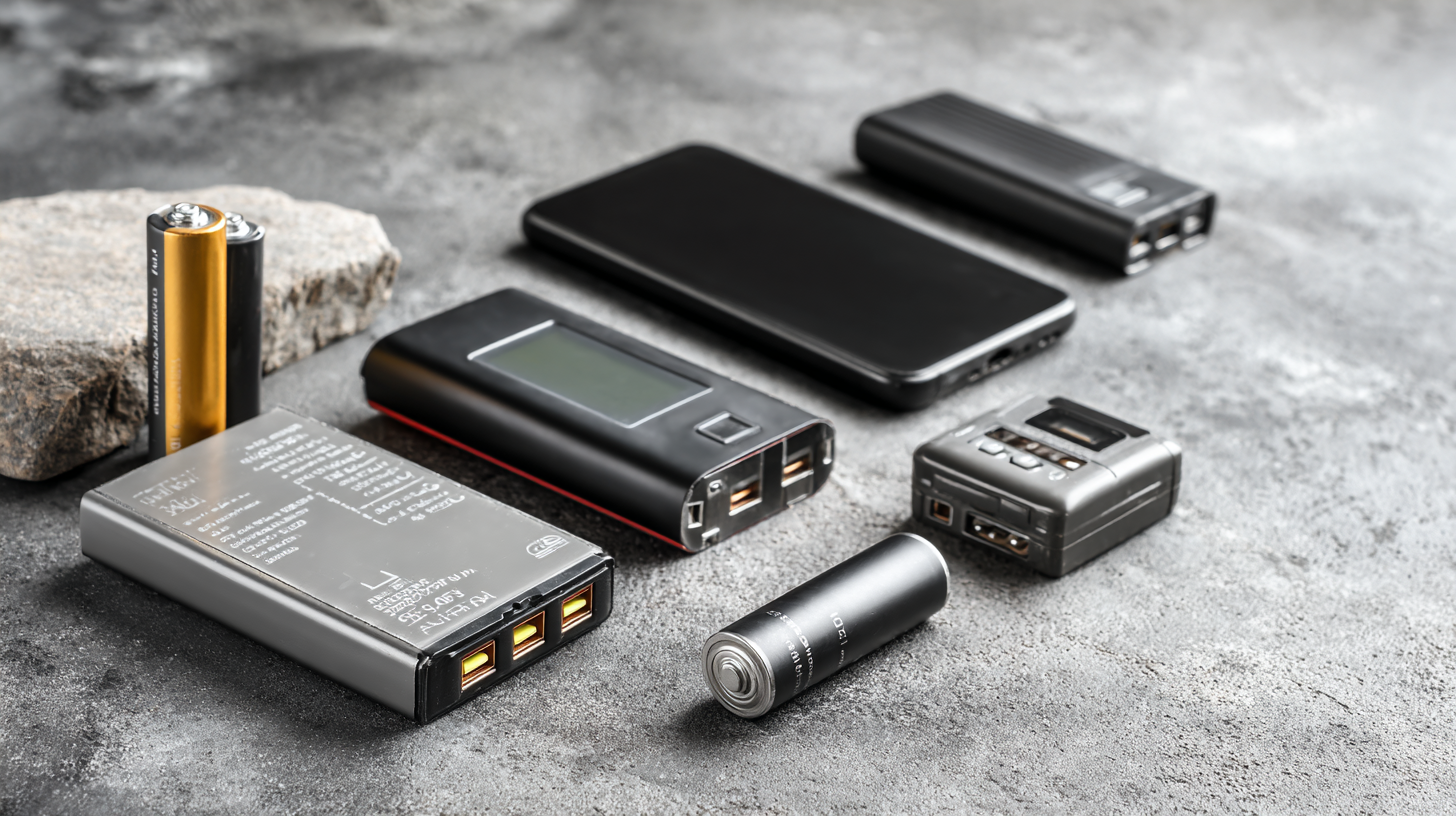
FAQS
: The primary advantage of lithium batteries is their impressive energy density, allowing them to pack a substantial amount of energy into a relatively small and lightweight structure, ideal for applications where space and weight are critical.
Lithium batteries have energy densities ranging from 150 to 250 Wh/kg, which is significantly higher than traditional lead-acid or nickel-cadmium batteries, enabling longer usage times between charges.
Lithium-ion batteries boast a high charge/discharge efficiency, often exceeding 90%, which means more of the stored energy is usable, minimizing energy wastage.
Lithium batteries have a low self-discharge rate, allowing them to retain their charge longer when not in use, which improves overall performance and reduces energy costs.
The fast charging capabilities of lithium batteries enhance convenience, allowing devices to charge in a fraction of the time compared to traditional batteries.
Fast charging supports the demanding needs of modern lifestyles by quickly replenishing power for devices like smartphones, laptops, and electric vehicles, allowing users to resume their activities swiftly.
Lithium batteries are preferred due to their combination of high efficiency, fast charging capabilities, and longer usage times, making them increasingly attractive for various applications.
As technology continues to advance, there is potential for faster and more efficient charging solutions for lithium-ion batteries, further enhancing their capabilities and applications.
Conclusion
Lithium batteries and lithium-ion batteries offer unmatched benefits that make them indispensable in today’s technological landscape. Their high energy density and efficiency allow for longer usage periods, while their longevity and durability ensure they stand the test of time, making them ideal for various applications. The lightweight nature of lithium batteries has redefined battery design, enhancing portability in devices ranging from electric bicycles to household appliances. Moreover, the fast charging capabilities of lithium-ion batteries revolutionize power supply, catering to the demands of modern consumers.
As we move towards a more sustainable future, the environmental impact of lithium batteries, including recycling practices, cannot be overlooked. Roofer Electronics Technology (Shanwei) Co., Ltd. leverages over 27 years of experience in lithium battery R&D and manufacturing to provide innovative energy storage solutions. From lead-acid replacements to household energy systems, the versatility of lithium technology continues to drive advancements across numerous sectors.
Related Posts
-
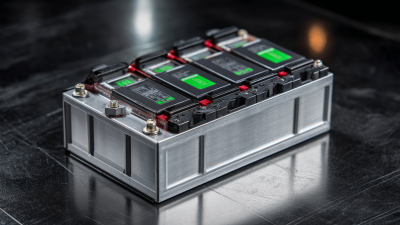
Understanding the Industry Standards for Best 12v Lithium Iron Battery Production
-

Advantages of Utilizing Battery Solar Lithium 51.2v Lithium Solar Battery for Sustainable Energy Solutions
-
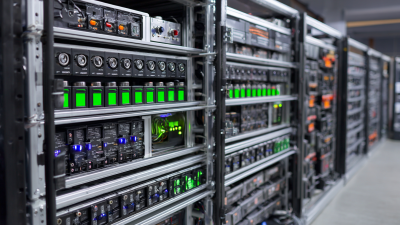
Your Ultimate Guide to Selecting Battery Racks for Optimal Performance and Safety in Energy Storage Systems
-

Ultimate Guide to Choosing the Right Solar Lithium Battery for Your Energy Needs
-
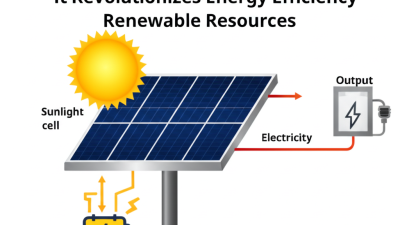
What is a Solar Cell Generator and How It Revolutionizes Energy Efficiency in Renewable Resources
-
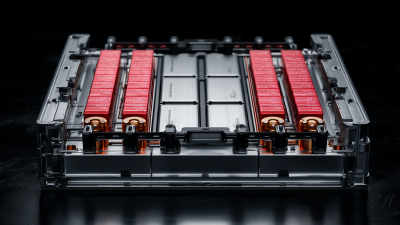
Why Lithium Iron Phosphate Batteries Stand Out Among Other Battery Technologies
Blog Tags:





 business@roofer.cn
business@roofer.cn +86 13502883088
+86 13502883088






